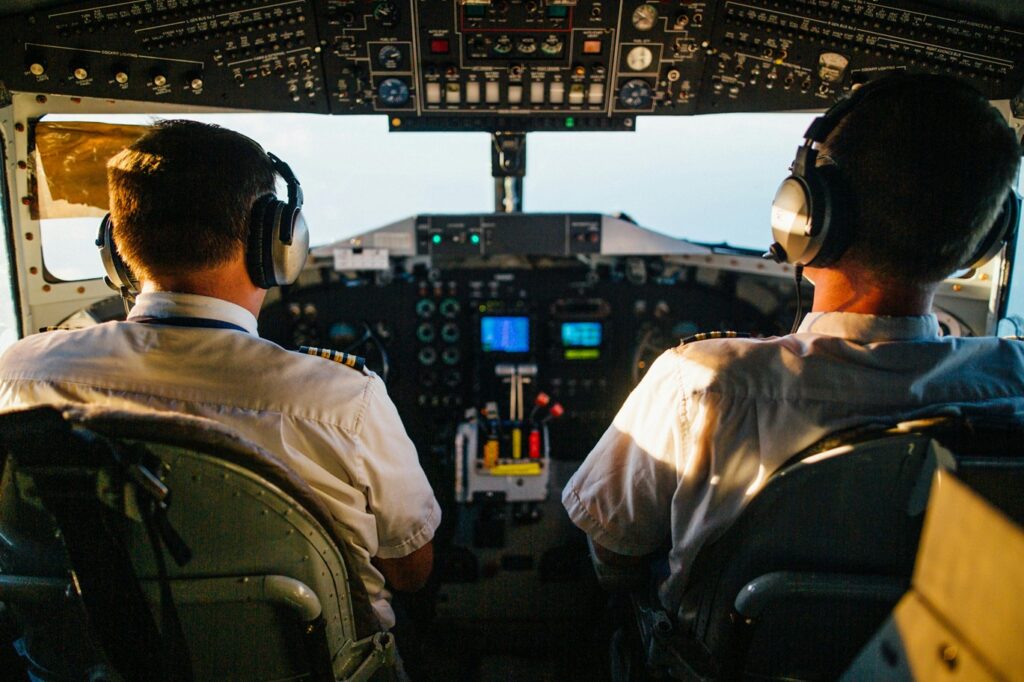
1. Human Oversight in Automation
- Monitoring Systems: While autopilots handle routine tasks, pilots are essential for overseeing system operations, responding to emergencies, and making judgment calls when automation fails or is unable to handle unexpected scenarios.
- Manual Intervention: In complex situations like severe weather, unexpected malfunctions, or critical decision-making during takeoff and landing, human pilots are irreplaceable.
2. Pilot Training and Instruction
- Flight Instructors: With more people entering the aviation field, the demand for experienced pilots to train new recruits is increasing. Opportunities in flight schools and airline training programs continue to grow.
- Simulator Instructors: As simulation technology advances, experienced pilots are needed to guide trainees through these complex and highly realistic environments.
3. Aviation Management and Operations
- Airline Management: Experienced pilots often transition into managerial roles within airlines, overseeing flight operations, safety protocols, and logistics.
- Operational Leadership: Pilots with deep technical knowledge of aviation systems are valuable in ensuring that airlines and airports run smoothly, especially in integrating human oversight with automated systems.
4. Specialized Aviation Roles
- Cargo and Military Pilots: The demand for specialized roles such as cargo transport, military aviation, or private jet flying remains high. These sectors often require highly skilled pilots who can handle diverse and demanding environments.
- Emergency and Medical Transport: Helicopter and small aircraft pilots for emergency medical services, search-and-rescue missions, and firefighting are in demand and operate in challenging environments that rely heavily on pilot expertise.
5. Unmanned Aerial Vehicles (UAVs)
- Drone Pilot Training: With the growth of UAVs, pilots can transition into drone operation for sectors like surveillance, cargo delivery, agriculture, and even passenger transport in the near future.
- UAV System Designers: Experienced pilots can contribute to the design and development of autonomous systems by providing human insights into flight operations and decision-making.
6. Corporate and VIP Aviation
- Private Aviation: The demand for corporate, private, and VIP jet pilots continues to rise, with more individuals and companies opting for private air travel solutions, which require skilled, certified, and experienced pilots.
- Charter Operations: Charter services, where pilots take on more flexible schedules, offer opportunities for pilots to work independently or with smaller companies.
7. Air Traffic Control and Safety Regulation
- Regulatory Agencies: Pilots can transition into roles with aviation regulatory bodies, such as the FAA or EASA, to help shape policies, enforce safety standards, and certify new aircraft technologies.
- Safety Inspectors: Pilots can work as safety inspectors for airlines or airports, ensuring that safety regulations and protocols are followed, especially in the interface between automated systems and human operations.
While the role of an aircraft pilot is crucial, aircraft technicians are equally important. Maintenance engineers play a vital role in ensuring aircraft safety and operational efficiency. To learn more about the critical contributions of maintenance engineers, you can read the article here.
JobsReach Aviation’s Role in Connecting Aviation Professionals Globally
JobsReach Aviation is uniquely positioned to play a pivotal role in helping pilots and aviation professionals find opportunities in this evolving industry. Here’s how the platform could impact the industry:

- Centralized Platform for Global Aviation Opportunities
- Connecting Pilots to Diverse Roles: JobsReach Aviation can serve as a centralized hub where pilots can find job opportunities not only in traditional commercial aviation but also in specialized fields such as UAV operation, private aviation, and military roles.
- International Access: By offering a global platform, JobsReach Aviation can provide access to jobs in various countries, making it easier for pilots to explore opportunities in regions with pilot shortages or high demand for specialized skills.
- Personalized Job Matching
- Skill-Based Filtering: The platform can help match pilots with opportunities tailored to their specific qualifications, such as flight hours, aircraft type ratings, and areas of expertise (e.g., cargo, charter, corporate).
- Career Progression Support: JobsReach Aviation can support career development by offering roles for experienced pilots looking to transition into management, training, or safety positions.
- Networking for Aviation Professionals
- Building a Community: By fostering a network of aviation professionals, JobsReach Aviation can create a space for collaboration, mentorship, and knowledge sharing. This network would enable pilots to connect with peers, recruiters, and industry experts.
- Knowledge Sharing: The platform can feature forums, webinars, and learning modules to help pilots stay updated on industry trends, regulatory changes, and new career opportunities.
- Highlighting Industry Trends and Emerging Opportunities
- Keeping Pilots Informed: JobsReach Aviation can regularly publish insights into industry trends, emerging roles (e.g., drone pilots, eVTOL operators), and the impact of new technologies on pilot career paths.
- Early Access to New Job Markets: By staying ahead of trends like urban air mobility and autonomous aircraft, JobsReach Aviation can help pilots transition into new roles, ensuring that they remain relevant in a rapidly changing aviation landscape.
- Global Reach with Localized Support
- Regional Jobs: The platform can offer localized job opportunities for specific regions, ensuring pilots can find relevant opportunities while still accessing a global network.
- Local Partnerships: JobsReach Aviation can partner with regional airlines, training schools, and regulatory bodies to ensure pilots are connected to local opportunities while staying aware of international prospects.
As autopilot technology advances, pilots remain crucial to the aviation industry in roles that require human judgment, experience, and adaptability. Opportunities for pilots continue to grow in areas like training, corporate aviation, UAV operation, and safety oversight. JobsReach Aviation can play a transformative role in connecting aviation professionals to these opportunities, creating a global platform for pilots to find jobs, access training, and build a professional network that spans diverse sectors of the aviation industry.
Leave a Reply